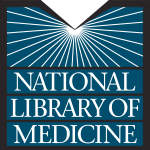- Sektör: Library & information science
- Number of terms: 152252
- Number of blossaries: 0
- Company Profile:
The National Library of Medicine (NLM), on the campus of the National Institutes of Health in Bethesda, Maryland, is the world's largest medical library. The Library collects materials and provides information and research services in all areas of biomedicine and health care.
1) Agents that are capable of inducing a total or partial loss of sensation, especially tactile sensation and pain. They may act to induce general anesthesia, in which an unconscious state is achieved, or may act locally to induce numbness or lack of sensation at a targeted site.
2) Substances that cause loss of feeling or awareness. Local anesthetics cause loss of feeling in a part of the body. General anesthetics put the person to sleep.
Industry:Medical
1) Tiny air sacs at the end of the bronchioles in the lungs.
2) A small cavity or pit: as a) a socket in the jaw for a tooth; b) any of the small thin-walled air-containing compartments of the lung that are typically arranged in saclike clusters into which an alveolar duct terminates and from which respiratory gases are exchanged with the pulmonary capillaries; c) an acinus of a compound gland; d) any of the pits in the wall of the stomach into which the glands open.
Industry:Medical
1) Feeling of distress or apprehension whose source is unknown.
2) Vague uneasy feeling of discomfort or dread accompanied by an autonomic response (the source often nonspecific or unknown to the individual); a feeling of apprehension caused by anticipation of danger. It is an alerting signal that warns of impending danger and enables the individual to take measures to deal with threat.
3) Apprehension or fear of impending actual or imagined danger, vulnerability, or uncertainty.
Industry:Medical
Use of different exons in formation of a mRNA from initially identical transcripts. Can result in the generation of related proteins from one gene, often in a tissue or developmental stage specific manner.
Industry:Medical
1) Abnormal buildup of fluid in the abdomen.
2) Abnormal accumulation of serous fluid in the spaces between tissues and organs in the cavity of the abdomen -- called also hydroperitoneum.
Industry:Medical
1) The tendency in certain genetic disorders for individuals in successive generations to present at an earlier age and/or with more severe manifestations; often observed in disorders resulting from the expression of a trinucleotide repeat mutation that tends to increase in size and have a more significant effect when passed from one generation to the next Click here for More information from GeneTests
2) Each generation of offspring has increased severity of a genetic disorder; e.g., a grandchild may have earlier onset and more severe symptoms than the parent, who had earlier onset than the grandparent.
Industry:Medical
1) Dense irregular connective tissue, which predominantly consists of adipocytes.
2) Connective tissue in which fat is stored and which has the cells distended by droplets of fat.
Industry:Medical
Plaques consist of amyloid deposits surrounded by a web of astrocytic processes, swollen neurites, and neuron terminals; seen in the cerebral cortex in Alzheimer's disease.
Industry:Medical
Of, relating to, or connecting the arteries and veins (arteriovenous anastomoses).
Industry:Medical
